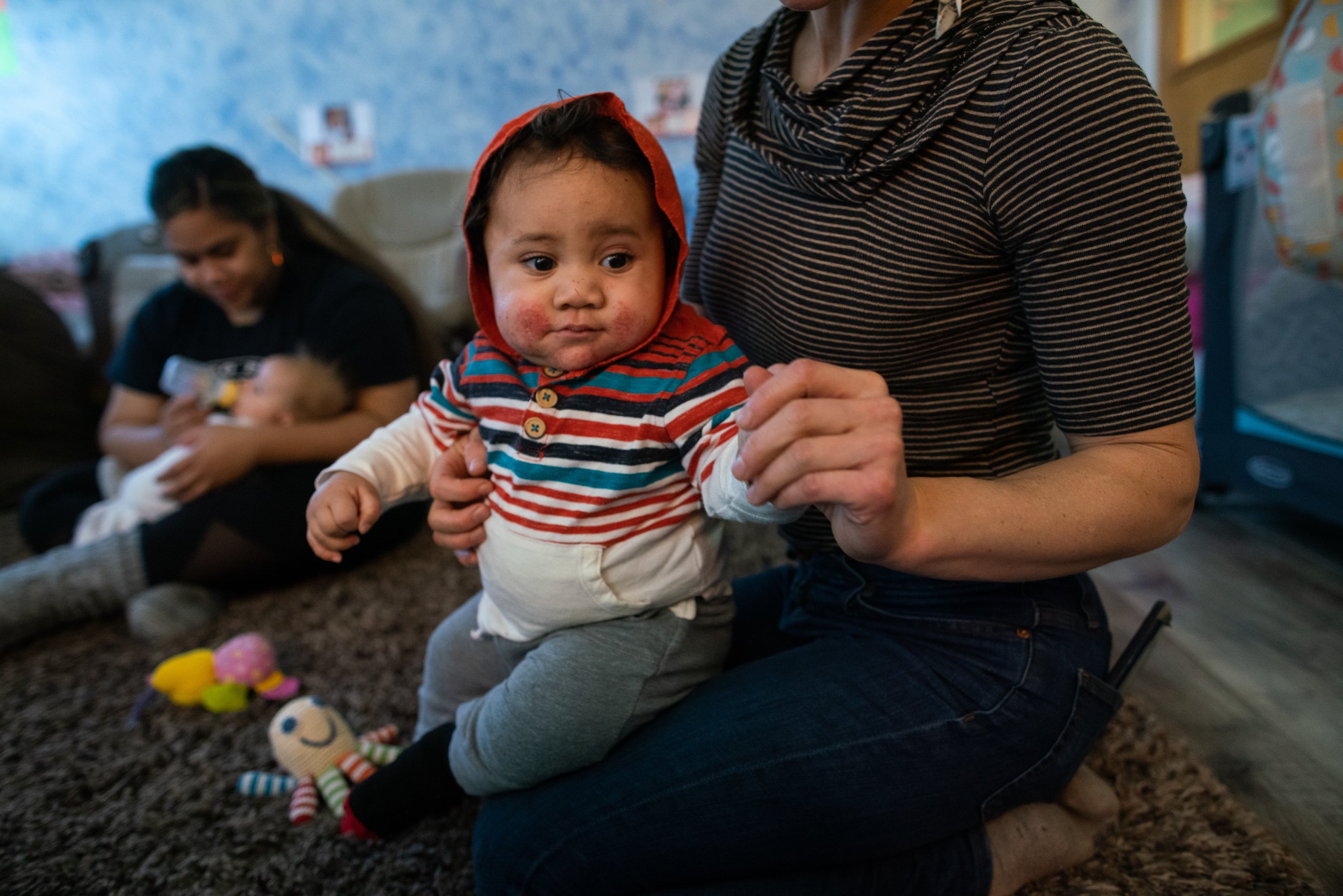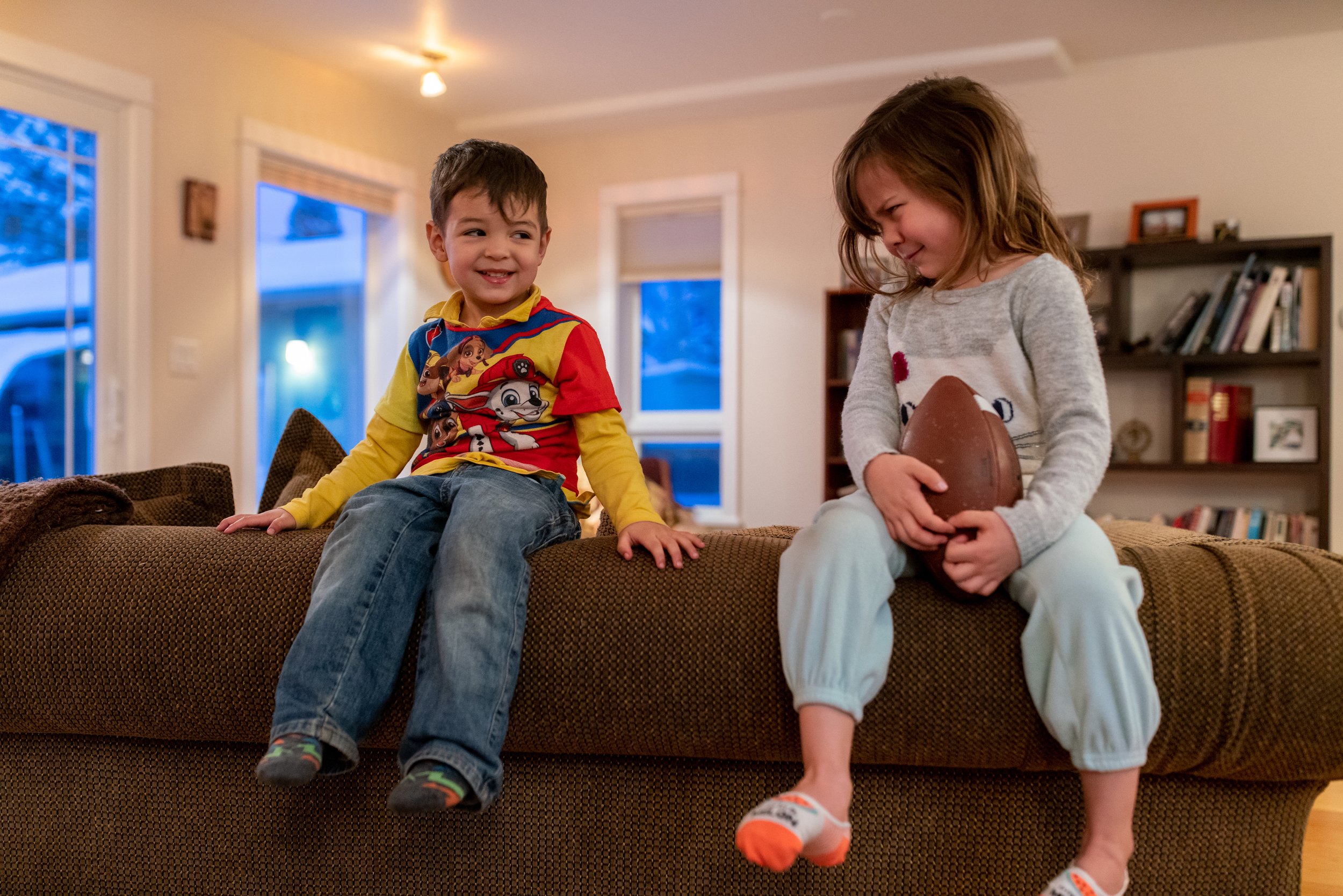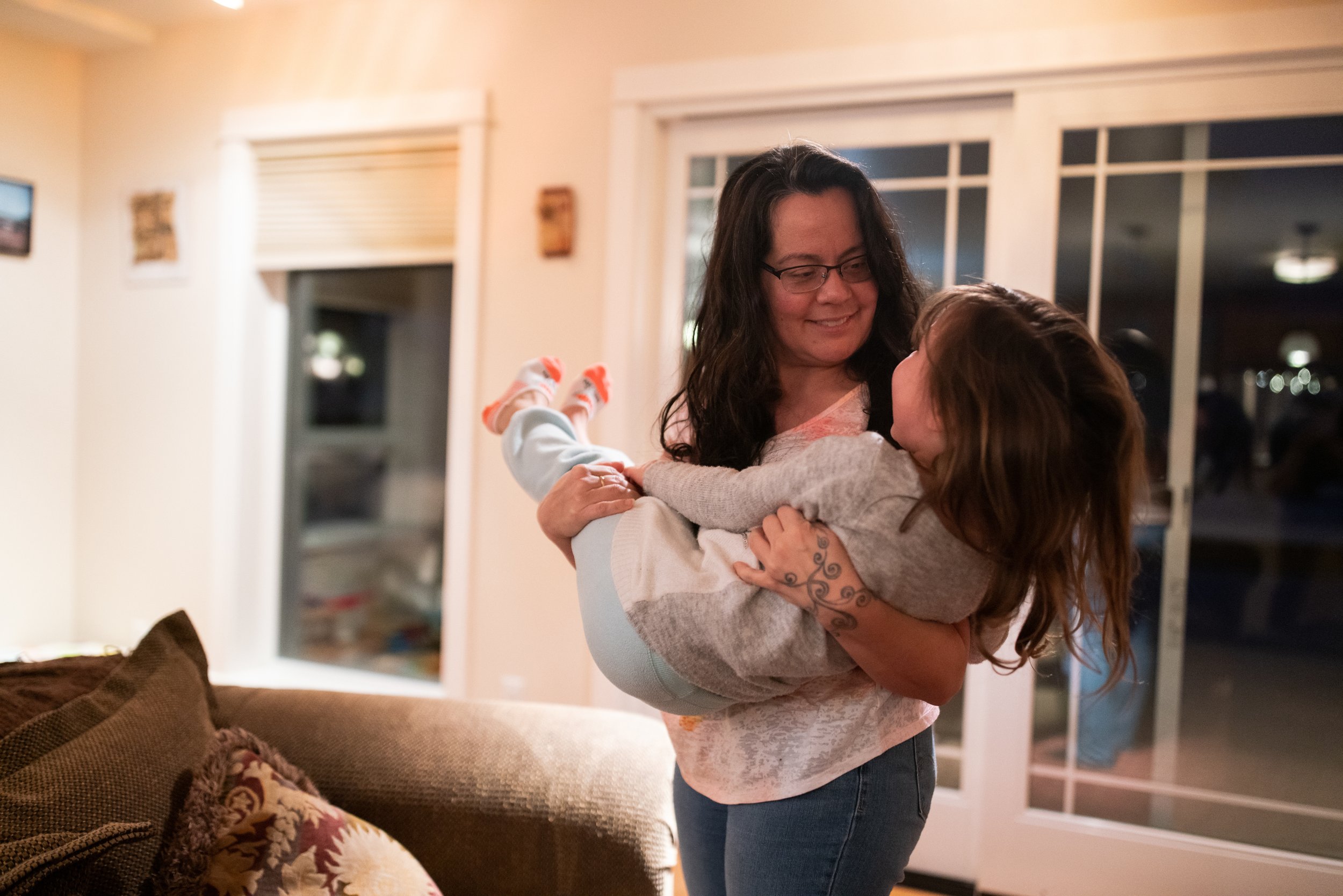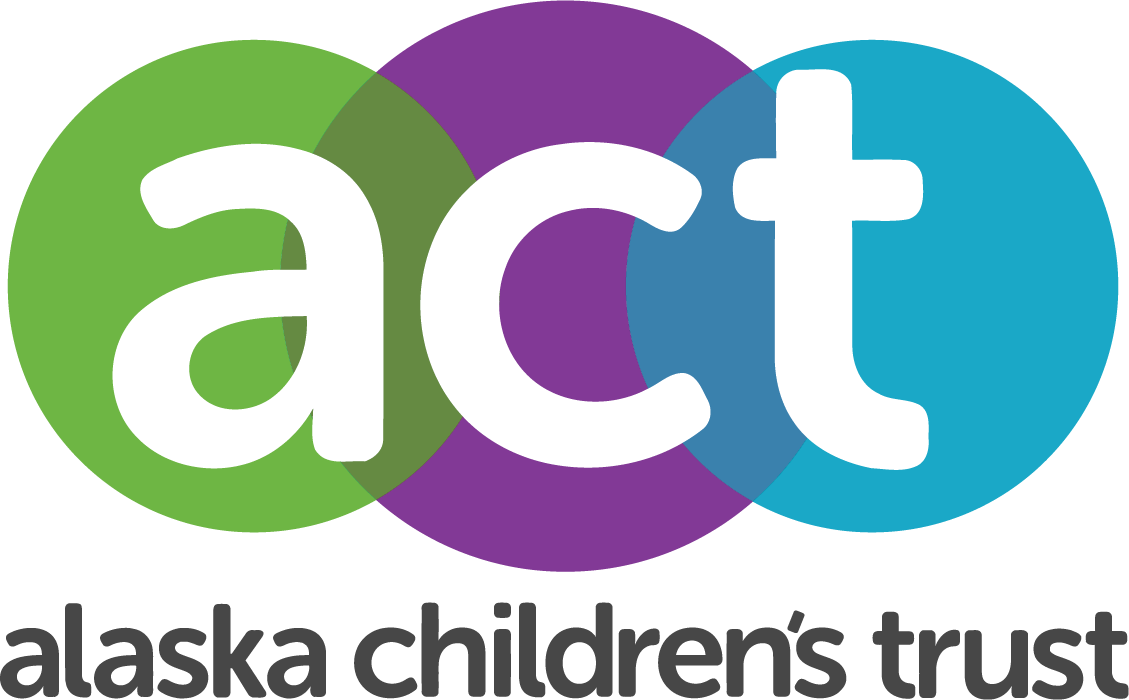
OUR WORK RESOURCES
Ways to Help
Passionate about preventing child abuse and neglect? Find little ways to make a BIG difference in the work to give children, youth, and parents the resources, supports, and skills they need!
Any Alaskan, Big or Small, Can Make a Difference!

01
OFFER YOUR SKILLS AND
HELP OUT
Be a search engine: do research for families. Offer to help parents find resources. Make it known that you’re good at finding information if a neighbor, friend, or colleague ever needs anything.
Offer help proactively and specifically: offer to be helpful before a family needs help and tell them what kind of help you want to offer. Create an environment in which asking for help is normal. Ask what they need by saying, “I want to help you. What can I do to help you?”
Keep your word: follow-through builds trust. Be realistic about what you can and can’t provide. Instead, tell them they won’t be alone.
When giving advice, put observations in a third-person perspective. Tell a story about another person when you offer suggestions, like “My friend did this, and it worked,” but acknowledge that no one solution works for everyone.

02
NORMALIZE SEEKING HELP
Recognize that every parent experiences stress. It’s not a weakness or failure to feel it. It’s normal. We don’t learn self-regulation and healthy coping if we don’t first recognize that we are stressed.
Accept help yourself and speak or post about the times you’ve received help.
Encourage parents when they seek assistance and watch your language when speaking about someone getting help. Instead of speaking negatively about people receiving government assistance or other forms of concrete help, you can change social norms to normalize help-seeking by saying something like, “I’m glad they’re getting what they need. We all need help sometimes.”
Share information about resources in your community and on social media. Normalize the existence and need for resources.

03
LISTEN
Listen more; talk less: Go beyond asking someone how their kids are; ask caregivers are they are doing, too. Listen actively. Hear someone’s story, especially before giving advice. You can ask, “do you want me to only listen, or listen and think of solutions, too?”
Don’t make assumptions: don’t assume caregivers need help or need you to “save” them. Sometimes all they need is a listening ear. Watch your posture and tone during the conversation.

04
BUILD CONNECTED COMMUNITIES
Know your neighbors: start connecting with people around you – on your block or in your apartment complex. Introduce yourself to new neighbors. Reaching out and knowing each other is protective for the whole community. Building relationships around you reduces the need to call the authorities.
Create and show up at community events: Organize potlucks for parents that could include clothing swaps. If you can, host events that offer parents a break and provide childcare. Virtual groups are great too – social media can connect us to others with common interests who share challenges or are in similar phases of life.

05
LEAD WITH KINDNESS AND CALM
Only through calm can you create calm. When you observe parents that are stressed, stay calm. Being a calm community member can help parents. Acts of kindness and caring deescalate stressful situations.
Run interference if you hear others saying something judgmental or negative to a parent in a stressful situation. Get closer and say something like, “It looks like she’s trying her best.”

06
BUILD CHILDREN AND YOUTH UP
Be kind whenever you’re in the presence of a child or young person. Strike a positive conversation with children and teeners. Make them feel like they’re part of the community and that you’re an adult they can turn to. Help build children’s social skills by modeling humility, character, courtesy, and kindness. Acknowledge teens’ strengths, effort, and feelings.

07
TEAR DOWN BIASES
Tear down biases: the idealized “normal” American family bears a distinctly white, middle-class standard. But we live in a multicultural society and our communities are full of loving families across a full range of cultural, racial, and income classifications. Understand that people raise children differently. Just because they aren’t doing it the way you do it doesn’t mean it’s wrong.
Value, promote, and respect cultural practices. A strong culture helps build identity and belongingness, which we all need to thrive. It helps build family resilience, too.
Construct safe spaces:
Address policies that may promote, lead to, or fail to discourage discrimination.
Build safe spaces: some groups who have experienced discrimination may need safe spaces to share knowledge and support each other. From there, they can connect one another to resources they trust, and build a circle of trust together.

08
FOR PROVIDERS AND EDUCATORS: SEE THE STRENGTHS
Educate rather than denigrate: shame is not a good learning tool. Assume parents are trying their best. They may not have the time, capacity, or desire to attend a parenting class or group. Start education efforts where parents already are and communicate without expectation. Don’t be offended if they don’t follow your advice.
Don’t take it personally: stressed parents may find it hard to accept help, especially if they find it hard to trust people because of their past experiences. In a crisis situation, you can say: “I know you don’t have a reason to trust me, but I’m on your team.”
Explore all options: when you have a concern about a child or family, ask yourself if you can offer support or connect them to resources.
Help parents know their worth. Tell them about the positives and strengths you see in them.
Check out this video or this video showing how clinicians can switch their language and questions to interact with patients and clients in a way that is informed by Positive Childhood Experience research
FOR YOUR FAMILY
As a parent, block out 15 minutes a day to play one-on-one with your child — doing anything he or she wants.
Tell the children or youth in your life how much you care for them and appreciate them. All children deserve to have someone who is “crazy about them” and loves them unconditionally.
Work with the kids in your life to explore their heritage and learn their family’s stories.
Grandparents are an incredible source of cultural heritage — from traditions to language to food! Encourage them to share stories with their grandchildren and even visit their schools to share where they come from.
Take care of yourself and know the resources you have at your fingertips. Call the Alaska parent helpline at 2-1-1 to get connected to resources in your community!
FOR YOUR COMMUNITY
Sponsor, volunteer, or participate at local events or nonprofits.
Take action on legislative issues that affect children and families. Call your elected representatives.
Introduce yourself to your neighbors.
Create a “Safe Children Zone” in your neighborhood. Host a community meeting with your neighbors to talk about what each of you can do to help create a sense of safety for the children in your neighborhood.
Volunteer at or donate resources to a local preschool or daycare center.
Ask a faith-based organization in your community about donations to support families in need.
Learn about becoming a foster parent. Not there yet? Try being a Big with Big Brothers, Big Sisters of Alaska.

